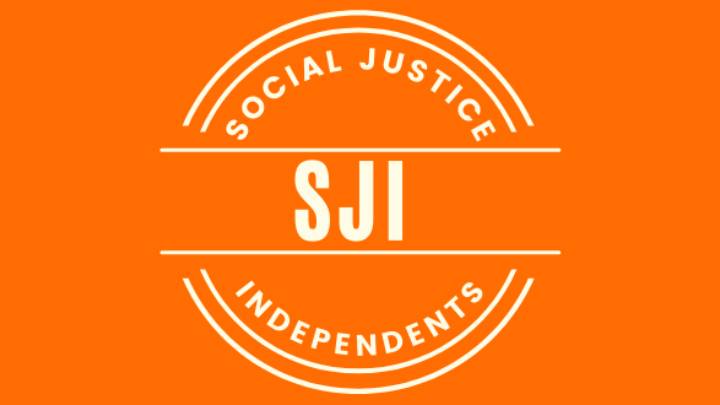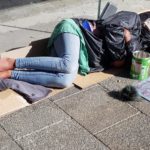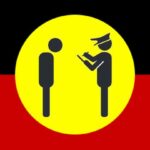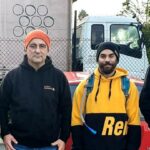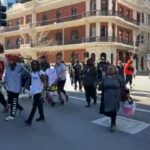Forging Social Justice in “Dickensian” Australia: Independent Gerry Georgatos Runs for Senate
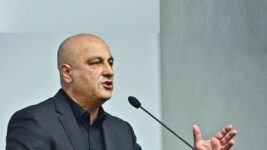
Social justice is something that the Morrison government hasn’t had time for since it tripped into power in August 2018. Indeed, for neoliberals, like the prime minister, ensuring equality for all is anathema to their creed.
This can be seen every time Scott Morrison raises the unemployed, as the PM fails to address their needs, but rather he uses the “dole bludger” trope to justify the deprivation government policy subjects them to, as well as providing “quiet Australians” with a demon to blame for grievances.
In terms of the planet’s most disadvantaged, well, Morrison simply seeks to punish them further.
Crafted in the wake of the Holocaust, which saw an estimated six million Jewish people killed, the 1951 Refugee Convention provides those fleeing persecution in their own countries with the means to seek refuge in others, but the Pentecostal prime minister prefers to imprison them.
And since its “miracle” win in the last federal election, the Liberal Nationals government has prioritised legalising indefinite detention for stateless people, enhancing the surveillance state, and now it wants to pass laws providing the religious with the right to discriminate.
So, that’s why the Social Justice Independents (SJI) are stepping up to run for the Senate, with the pledge to “leave no one behind”.
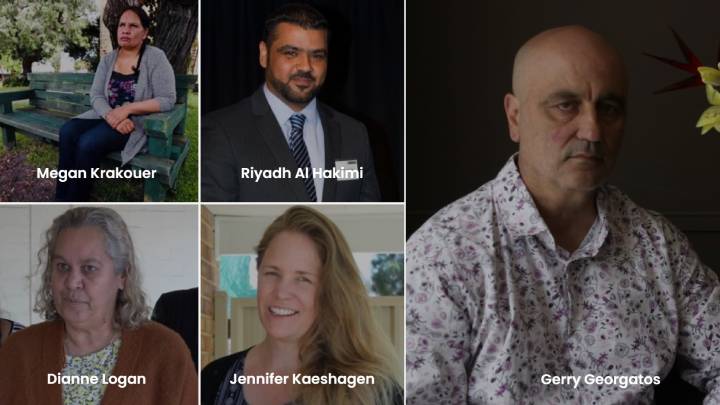
A social justice warrior
So far, the SJI ticket has five prospective senators running: Gerry Georgatos, Megan Krakouer, Riyadh Al-Hakimi, Dianne Logan and Jennifer Kaeshagen. And all of these candidates have spent years working with the marginalised and disadvantaged in the WA community.
Lead SJI candidate, Georgatos is a West Australian man, who’s renowned for his suicide prevention work, with a particular focus on the high rates amongst First Nations peoples. And over recent years, he founded the National Suicide Prevention and Trauma Recovery Project.
Gerry has also been a tireless advocate for Perth’s growing homeless population, which lately has seen over 50 rough sleepers dying in the streets, while he’s also been raising awareness to the plight of the nation’s inmates who once inside are deprived of any adequate medical care.
Currently, those on the Social Justice Independents ticket are also mounting the Banksia Hill Class Action, which seeks just compensation for WA youths who’ve suffered in that state’s only juvenile detention centre. And SJI is keeping its eye on the further goal of abolishing youth prisons.
The writings on the wall
As the nation sets its sights on next year’s election, the focus is on independents. Analysts are predicting that neither the Coalition nor Labor are likely to form a majority government, so therefore, independents are set to play an essential role in legislating over the next term.
With independents Kerryn Phelps and Zali Steggall having upset business as usual by taking out key Coalition seats in 2018 and 2019 respectively, there are now currently a number of other female independents running in prime seats against prominent male Liberal MPs.
While the Social Justice Independents are offering the WA constituency a chance to vote in its first independent candidate to the federal upper house since 1971.
Sydney Criminal Lawyers spoke to Social Justice Independent Gerry Georgatos about the need for legislation protecting the rights of all citizens and residents at the federal level, the prospect for decarceration and why sandgropers ought to place a number one next to his name on the ballot.
The Social Justice Independents are running for the Senate, calling for an erosion of monopoly politics, with the opportunity for Western Australia to vote in its first independent senator since 1971.
So, Gerry, more broadly, what does SJI stand for?
Simply, SJI stands for independents – not political parties – in the legislative body of the Australian Senate.
For too long, the Australian Senate – indeed from the start – has been a restroom and a reward for party fixers, powerbrokers and nepotistic lobbyists.
We are a humble coalescing of social justice warriors, human rights practitioners – of change agents – led by deeds before words alone.
We are giving it an almighty shot – in my case, a final bid – to get one of us, miraculously, maybe more into the Senate – the nation’s penultimate legislative body.
If we get, say, me into the Senate, we will bring the discursive into the Senate – widening the seemingly entrenched narrow corridor of political debate.
Nations are defined by their Senates – to extrapolate from Dostoevsky, if you want to know the heart of a nation, look into its Senate…
The Australian nation – a double trillionaire GDP economy, the 12th biggest economy in the world, among the world’s highest per capita individuated asset wealth but skewed by it mostly in the troves of billionaires – lacks universalism, lacks equality, lacks fairness, and lacks the love of one another.
In the last half century, the Australian economy has been purposefully regulated to further empower the billionaires, cheat the masses, and indenture the workers.
The public owns less sovereign wealth than ever before. Taxes aren’t the solution, equality and equity are the justice – the caveat protections.
In the last three decades, the Australian people have been corralled into human miseries – hovelled.
We live in an orchestrated erosion of once civil liberties. Freedom of speech has been mangled – turned against – while political and civil enmities and improprieties have been crafted.
Surveillance and concomitant exploitation under the guises of protections and economic modifications are hideous reprehensions.
There are more orchestrated socioeconomic stressors today than ever before. There is more orchestrated unhappiness today than ever before.
The horrendous lie of our generation – here and the world over – is that we are lifting people out of poverty.
Eight out of ten people the world over live on less than $10 AUD daily, half the world on less than $5.50, a quarter of humanity on less than $3.30.
With Australia, the escalating poverty wars are here too. The data is skewed to argue 14 percent of Australians live below the Henderson Poverty Line.
The poorer someone is, the lower the income base, the higher the rate of suicide, of depressions, clinical disorders and psychosocial disabilities.
The official prescribed facts tout 5 percent of Australians unemployed, but, in fact, more than a quarter of eligible working age Australians are unemployed – jobless.
Governments lie to the people.
We want seasoned expertise in the Senate, not apparatchik and betrayers.
We do not promise to be all things to everyone but promise to take the discursive engagements to the level they should have been at and be relentless in ensuring to follow through.
We do not promise to change the world, but we promise to do all we can: to knock ourselves out in pursuit of social goods, community reckoning, the common good, and positive universalisms.
A key priority for SJI is the establishment of a federal human rights act, or a bill of rights. Why is this a focus for you? What would the benefit?
A human rights act would repair much of the damage caused by one government after another to disadvantaged people.
We are a nation with a horror show of human rights abuses, abominable violences, and the diminution of what should be impenetrable common humanity.
A federal human rights act would bring the Australian community closer together, reduce the risks to the erosion of civil liberties and protect rudimentary human rights, which we falsely take for granted and as if immutable.
Without a federal human rights act, our nation remains hostage to the Kafkaesque, to deportations, to arrests and detainments without court warrants and without substantive grounds.
Recently, I represented an Australian resident of Philippines heritage – he was to be deported. He’d spent three quarters of his life in Australia, since age 10.
I turned to eight lawyers trying to secure representation. He was languishing in an immigration detention centre. His Australian born and bred children were about to lose their father.
There are so many deportations, and many are unrepresented and deported. I represented him in the Administrative Appeals Tribunal. I won his right to stay, but what of so many others?
The eight states and territories must also have a jurisdictional human rights act, which cannot conflict with the federal one, but which is ancillary and extends to state and territory jurisdictional responsibilities, such as correctional facilities and therefore the rights of the incarcerated.
No one must be lost. No one alone.
The Australian Constitution was scribbled together at a time of horrendous discriminations – of reprehensible racisms.
At a time when the invaders dished out eugenics, apartheid, segregation, exclusion of peoples and who federated White Australia policies.
A federal human rights act must protect the rights, make impermissible the Kafkaesque, for all citizens and all residents — special visa residents, permanent and temporary visa residents, refugees and asylum seekers.
No one who walks this continent, no matter where they are from or why, should ever become unseen and unheard.
I have been representing residents of many years living on this continent, some who have Australian born and bred children, who have had their visa revoked and hence are at-risk of deportation.
Unaccountable bureaucrats and politicians bent by muddled-minded dogma playing out age-old racism.
A decade ago, I fought for up to 158 Indonesian children of whom the majority were incarcerated in Australian adult prisons, while the remainder languished in squalid immigration detention centres littered across the continent.
Every human being should be protected in terms of their rights. Australia’s human rights record, on so many fronts, has degenerated contextually to its lowest ebb during the last quarter-century.
A federal human rights act can repair Australia’s appalling record of human rights abuses.
Human rights and civil and political liberties should never be at the behest of any government but rather by referenda to the people.
The social good, the common good and universality should never be tenuous or frail because of a change of government.
Without a human rights act, we are at risk of tyranny by government.
The common good in all of us aspires to an Australia with the world’s best human rights record. No nation should be at the behest of populism and no government should be unaccountable.
A human rights act commits governments to the common good. A comprehensive robust human rights act ensures a higher level of trust from the people than is the case with the absence of one.
The work of government becomes clearer and monitored where there is a human rights act.
The Australian Capital Territory enacted its Human Rights Act in 2004. Victoria enacted its Charter of Rights and Responsibilities in 2006. Other jurisdictions are languishing.
However, the ACT’s act and Victoria’s charter are substandard and need to include every resident, as I have described thus far. The processes underwriting their representations and the access to adequate representation must be guaranteed by an overarching human rights act.
A federal human rights act can wind back the dramatic erosion of civil liberties, during the last quarter-century, which has now diminished rights and privacy to the once unimaginable.
Human rights and responsibilities are intertwined and are not separate as propagandists would have us believe.
The human rights act which I would be proud of is the one that ensures protections and inalienable rights to citizens, residents of all categorical types, refugees and asylum seekers.
More than 40,000 citizens and residents are incarcerated in over one hundred gaols and their rights should not be diminished once incarcerated. But sadly, this is what occurs.
Most Australians do not know that the incarcerated are denied Medicare and are not easily entitled to the Pharmaceutical Benefits Scheme (PBS) and to the National Disability Insurance Scheme (NDIS).
The result is substandard health care – primary, secondary and allied – and unnatural deaths in custody, with many coming out of the carceral experience worse than when they went in and many more suiciding or dying unnaturally within the first-year post-release.
Many of us have been calling for prisoner rights for decades, not just limited to Medicare, the PBS and the NDIS.
A human rights act can extend the age of criminal responsibility to 14 and I have written widely on this over the decades.
Children are children and we must understand for many the unfairnesses and disadvantages they have been born into and work psychosocially to nurture and transform their lives.
I have long argued for the abolition of children’s prisons. Many are aware of the looming class action against the Western Australian government over the Banksia Hill children’s prison.
The testimonies I have been assisting in collecting from all over Western Australia are harrowing and heavy the heart.
Furthermore, in my view, a human rights act must entitle every citizen and resident to social security payments when needed — no one should be left behind.
But more than a million residents are not eligible for support payments and this, in my view, is a political and moral abomination.
Other considerations for inclusion – but which can be legislated separately if it means delays to the advent of a federal human rights act – are a basic universal wage to everyone, so everyone is born into some semblance of fairness and advantage.
No one should be homeless in any form and the right to housing – if we believe in “society” – should be ensured for everyone: citizen and resident. And therefore, each jurisdiction would be compelled to ensure adequate social and public housing.
The Productivity Commission, without fail in its every annual report, argues the most concerning issues as the lack of public housing and the denial of support payments. In my view, these are human rights abuses.
Lastly, I would like to suggest caps on parliamentary tenure.
We cannot guarantee expertise in our parliaments, but we can reduce the power imbalances, the influence of lobbyists, the pernicious and mostly unseen corruption by capping parliamentary tenure in the House of Representatives to two terms and in the Senate to one term.
My definition of political “careerists” are individuals who seek re-election. Politics should be a calling.
Other key SJI issues are abolishing children’s prisons and raising the age of criminal responsibility.
SJI has also recently launched the Banksia Hill Class Action, aimed at seeking compensation for past detainees who were mistreated whilst being held at WA’s only juvenile detention centre.
Can you speak on these matters?
The prison industrial estate condemns Australia as failing its most vulnerable. Our expansive carceral estate is an indictment and a leaving behind of brothers, sisters and children.
Australia is polluted by 115 adult prisons and 17 juvenile detention facilities – children’s prisons.
More than 500,000 Australians, living, have been to prison. The carceral estate is not “rehabilitative” — it is not born in a firmament of the redemptive, restorative or transformational.
The carceral estate is not chartered by a pursuant positive social return, so that sisters and brothers and children – born into unfairnesses, disadvantage, cruelty and suffering – are psychosocially supported to be their best selves.
Currently, Australia is the world’s 12th biggest economy: a trillionaire-plus Gross Domestic Product economy with among the world’s highest median wages and among the world’s highest per capita asset wealth.
It is my claim Australia is a Dickensian tale of the haves and have-nots.
More than half of the incarcerated were unemployed during the month before they were tossed into prison.
The majority of the incarcerated are comprised of the lowest quintile of income bases: vaulted below the poverty line, below the “bread line”. In fact, well below what I term “crushing poverty”.
They are socioeconomically corralled concomitantly with low levels of education and high levels of mental health battles that see many degenerate to drug and alcohol misuse and dependencies. Four in five leave prison with no employment prospects.
More than half of the incarcerated did not have a permanent address during the month before imprisonment. Despite the claim that two-thirds have a fixed address to go to upon leaving prison, the grim reality is it is not true.
It is a tick-the-box ruse to score liberty. More than half leave prison to insecure accommodation, transience or some form of homelessness.
More than 80 percent of the incarcerated have not completed secondary school education. Two in three did not reach Year 8.
Education is a social determinant of good health. Comparatively, the primary and secondary health of the incarcerated is insidiously poor.
I have written widely over decades about the exclusion of prisoners from Medicare, the PBS and also the NDIS. This discrimination is a political and moral abomination.
In my view, the majority leave prison in worsening health. The incarcerated, in general, because of markedly shorter life expectancy, are “old” in their 50s.
Poor education, poor primary health, unemployment and housing insecurity are directly linked to the poorest psychosocial outcomes. Cumulatively, they are the drivers of incarceration.
Many people upon leaving prison are not assisted by Centrelink support. They often leave without any identification documents, without healthcare cards and without bank accounts.
These are direct links to reoffending. Eight of ten leaving prison will need to depend on Centrelink support payments.
We are a nation demanding penance through the punitive. We punish relentlessly instead of redemptively. We often do not listen to evidence. Without psycho-educative rehabilitation, you change nothing.
A significant proportion of incarcerated people are gaoled for low-level offences. An amnesty could see nearly half the national prison population released.
Imagine this validation of love. They could be supported post-release through various nurturing programs to become transformational, positive selves.
Half our prisons would disappear. What is left of the carceral estate could become educative, transformational in terms of pathways to improved selves – including educational and trade qualifications – and offer release thereafter to secure employment supported by periodic mentoring.
As mentioned, earlier this year, I was instrumental in the launching of a class action lawsuit against Western Australia’s children’s prison, Banksia Hill Detention Centre.
The class action thus far has registered 500 plaintiffs. We were not put on this earth to betray our children. The most vulnerable children I have met are children who finish up in juvenile detention.
There are 17 children’s prisons in Australia: seven in NSW, two each in the Northern Territory, Queensland and Victoria and one each in Western Australia, South Australia, Tasmania and the ACT.
During the hard border lockdown of Western Australia in March 2020 – with all residents required to isolate in their homes – the majority of outreach services stopped. All outreach services to BHDC pulled the pin.
For years, I had begged the Western Australian state government to allow high calibre and wide-reaching restorative models into BHDC.
I had won the support of minister for emergency services and corrective services Fran Logan, but the battle to get us in was an arduous one.
However, when outreach services withdrew, then Department of Corrective Services commissioner Tony Hassall, deputy commissioner Cheryl Clay and corrections staff member Kymberley McKay summoned me and a colleague, Megan Krakouer, to BHDC that same day. We began immediately.
The next morning, I said to Megan and to my then 20-year-old daughter Connie Georgatos, “We may never get this opportunity again. So, let us do everything we can to assist as many children as possible.”
We focused on female detainees aged 11 to 18. When we commenced at BHDC, there was a female detainee population of 18.
I applied to the Children’s Court to release as many as possible and it did. We provided substantive post-release support. Within eight weeks we had more than halved the female detainee population to just seven detainees.
Eight weeks later, by the 22 of May — our time was up. We were not as needed with quarantining more relaxed and the services that had pulled out now returning.
We had taken it upon ourselves to set a demonstrative example of what works restoratively, and we took psychosocial support to a whole new level.
The children of BHDC need one-on-one support. Intense psychosocial and psycho-educative transformational models must be crafted around one-on-one support and nurture.
If BHDC has a detainee population of 100, then deploy 100 nurturers and you’ll not have children returning to BHDC dozens of times, nor the hideous statistic of 70 percent finishing up in adult prisons.
Acacia Prison accounts for nearly one in four of Western Australia’s incarcerated adults. Tragically, there were two suicides there early last year – one of a 19-year-old not long after serving stretches in BHDC.
Serco privately manages Acacia Prison for the government of Western Australia. In October 2020, surprisingly I secured nine months of restorative work in Acacia, with a focus on reducing self-harms.
Despite years of my criticising Serco and various governments over their maltreatment of asylum seekers, refugees and prisoners, good people in Serco, who know me as a deliverer, supported my small team to work in Acacia.
During these nine months, we engaged with 1,200 of the 1,500 prisoners – substantively with 400 – and supported 70 of them post-release.
We supported some to education, a few to university and many to employment.
Once again, I advised my colleagues that we may never get this opportunity in the future. I told them that once contracts are secured by Serco from the government of Western Australia, they may not continue with us.
Indeed, the 25 of June was our last day, despite Acacia recording, in the final quarter of last year and the first quarter of this year, its lowest toll of self-harms and incidents.
Political will is needed to end the moral abomination that is Australia’s punitive carceral estate.
I have been instrumental in 17 individuated legal actions and in the recent class action, the first of 22 class actions.
We can keep fighting at the coalface, at the next level in the courts, or get someone like me into the Senate. And we ensure we carry hearts and souls.
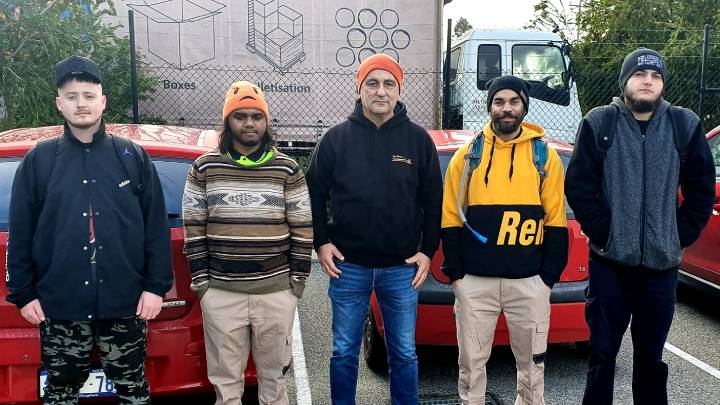
There’s a lot of talk about what’s going to happen with this coming election, in terms of a possible hung parliament or the potential for new power sharing arrangements.
And a lot of this talk is focused on the potential that independents have to forge change after the national vote.
Do you see this election as being of a heightened significance?
Hung parliament or otherwise, authentic independents with demonstrable lifelong works in social justice are needed to forefront the Senate.
There are always potentialities, and the translations of potentialities always depend on who is there – on the expertise. It’s akin to the get what you buy premise or the get what you vote for.
Power imbalances always try to corrupt their way to preferred outcomes and for us we rely on our lifelong warrior spirits to fight this seemingly almighty near impossibility to get me into the Australian Senate.
Every election is of equivalent significance. Every government has betrayed and abused the trust of the people.
In the Australian context, from the start it had racialised powers to do bad and a White Australia policy, effectively, in its Constitution.
There has been the betrayal of the then assumption of treaty by the Hawke-led government, the Howard government’s murderous betrayal of the SIEV X, the political bipartisan betrayal of Tampa children overboard, and the Rudd/Gillard-led governments betrayal of asylum seekers and refugees.
Every government betrays the homeless, the poor and the low-income worker.
Classism and betrayal, exploitation and suffering are the works of governments and the top-end elite, hand-in-hand.
There are four other candidates running on the SJI ticket with you. Can you tell us a bit about them?
We made a pact to speak little of ourselves and let people Google us: our works and deeds speak.
We believe in the means to the end. We are solid on keeping focus on issues, campaigns, ways forwards, and on leaving no one behind.
Your readers can Google Gerry Georgatos, Megan Krakouer, Riyadh Al-Hakimi, Dianne Logan and Jennifer Kaeshagen, if they like.
There will be a sixth candidate announced once the election is called. We are a group ticket of six independents for the Senate.
If I am voted in, all six of us will go to Canberra and do as much as we can in the making of meaningful differences over the six years and leave a legacy of change.
Example is our only immortality. Leave no one behind.
And lastly, Gerry, for those in Western Australia, why should they vote for you as the lead candidate on the SJI ticket to be that independent voice in the Senate?
Fair question. Google and you’ll find I deliver. I have lived classism, racism, ableism and ageism.
I fight through. I never give up.
